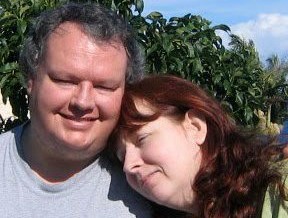I spent some time looking at ideas on the Contract for the American Dream site. There are a lot of good ideas there… and some others that are not so great.
The site breaks down into four sections. It’s not immediately obvious once you get to the Rate Ideas page that you are in one of four lists… so if you start seeing similar ideas and not much that’s new or interesting, go back to the home page and choose a different section to read and rate.
Here are some of the ideas and my reactions to them.
In the “Good Jobs” section:
Put people to work fixing infrastructure. Government jobs are jobs! — I like this one because our infrastructure *is* failing. Roads, public buildings, schools, whatever. Bring back the WPA.
Fund more green jobs. — Kickstart the green economy.
Stop outsourcing. — I didn’t care for these much, because it represents “us vs. them” thinking. I don’t agree that outsourcing is necessarily bad. Sounds to me like a form of protectionism. Now, if we could make sure that workers *everywhere* earn a fair wage, maybe there would be less incentive to send jobs overseas. Even if outsourcing is bad, it’s sort of beside the point… Jobs will get created by building stuff here (like roads) or providing services here (like decent health care or installing solar panels).
Crack down on illegal immigrants — I don’t care for this one as much either, not because it’s a bad idea, but because it misses the point. If someone is here illegally, and working, someone else is paying for it, by buying the cheap food they pick or buying the houses built for less, or working in buildings cleaned by them. Pay a decent living wage to everyone, and then maybe US citizens will actually want that job, and companies that hire 100% legally won’t be at such a disadvantage to their competitors. Illegal workers are not the problem… the problem is that we don’t want to pay the true cost of our stuff.
In the “We all pay our fair share” section:
Tax the rich more, not less. — I’m with this one 100%. Who wouldn’t sell their left arm to be in the top US tax bracket, even if that meant 50% or even 60% tax rate? That’s in the “nice problem to have” category. If you’re rich, you’re fortunate, and you should pay more. Equal is not fair, in this case. Also, there’s a great video of milionares saying “Come on! Tax me more! Please!”
Simplified tax. — Another great idea. Get rid of loopholes and shelters and crap. Tax income, tax luxury items, and do it consistently.
Flat tax — This one gets a lot of play, but I don’t think people have thought it through carefully. “Flat tax” means everyone pays the same percentage. A flat tax is not progressive at all. Progressive taxes are much more fair.
Sales tax instead of income tax. — Nope, in fact I go the other way on this one… sales taxes are regressive, which is even worse than flat tax. Once you get to “comfortable” level, you will not spend much more on goods and services whether you make 60k/year or 600k. Sales tax is regressive. Tax luxuries but don’t tax basic essentials.
In the “Strong communities” section
Better rail and public transport — I like this because public transportation is very green, and because subsidizing public transportation gives the benefit to poorest Americans who need it most.
Single payer health care — I like this one because health care should be a right, and everyone should get the same care, not separate-but-unequal like we have today. It doesn’t have to be government owned and operated… check out the French system for example.
In the “Working Democracy” section
Don’t let corporations speak louder than people. — I’m totally with this one. At least, if corporations want to exert political influence, they should be taxed the same rate as real people, too.
Campaign finance reform — I don’t really like “public financing of campaigns” but so far I haven’t seen any better ideas for campaign finance reform. Make contributions to candidates or issues 100% transparent; no more hiding political influence behind a shell organization that doesn’t disclose its sources.
Stop privatization of basic services. — I think when Republicans and Libertarians call for “Small Government” it is actually code for “Ration basic services based on who can pay”. If you like the idea of small government, you probably are wealthy enough not to need the safety net.
Proportional representation and Instant runoff voting — both are ideas that would give third parties a fighting chance. Other countries (with newer versions of Democracy) have 10% of representative seats given to the party that got 10% of the vote.
